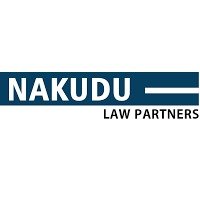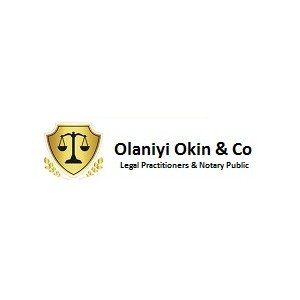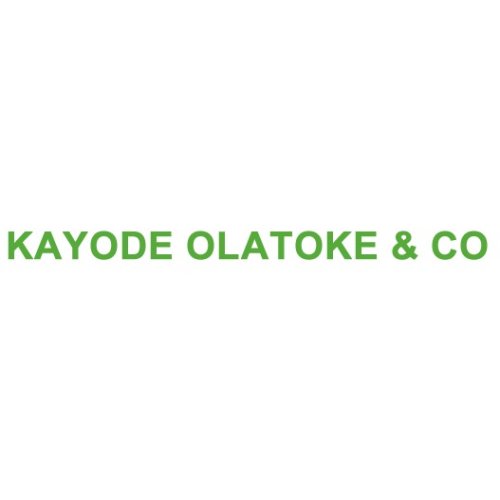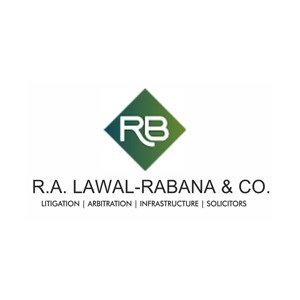Best Equity Capital Markets Lawyers in Nigeria
Share your needs with us, get contacted by law firms.
Free. Takes 2 min.
Or refine your search by selecting a city:
List of the best lawyers in Nigeria
Legal guides written by Adeola Oyinlade & Co:
- Procedure and Requirements for Work Permit and Visas in Nigeria
- The Step-By-Step Procedure of How to Apply for Microfinance Bank License Online in Nigeria
- How to Ensure the Smooth Recognition and Enforcement of Foreign Judgments in Nigeria
About Equity Capital Markets Law in Nigeria
Equity Capital Markets (ECM) law in Nigeria covers the legal framework and practices relating to the issuance, buying, and selling of equity securities such as shares. These markets facilitate companies in raising capital from investors to finance their growth and operations. In Nigeria, ECM activities are primarily regulated to ensure transparency, investor protection, and the smooth operation of capital markets. The Nigerian Stock Exchange, now known as the Nigerian Exchange Group (NGX), is at the center of ECM transactions, guided by a set of rules and supported by government agencies such as the Securities and Exchange Commission (SEC).
Why You May Need a Lawyer
Engaging with equity capital markets can be complex, and legal assistance is often necessary to navigate regulations, fulfill listing requirements, and protect your interests. Here are some common scenarios where legal expertise is invaluable:
- Guiding a company through the process of Initial Public Offerings (IPOs) or secondary offerings
- Ensuring compliance with SEC and NGX regulations
- Structuring equity investments and performing legal due diligence
- Drafting and reviewing prospectuses, subscription agreements, and shareholder agreements
- Negotiating strategic investments or public takeovers
- Advising on regulatory disclosures and ongoing compliance matters
- Handling disputes or investigations related to market manipulation or insider trading
- Advising on rights issues, bonus issues, and other capital restructuring measures
Local Laws Overview
The Nigerian equity capital market is governed by several key laws and regulations. Understanding these legal frameworks is crucial for successful and compliant transactions.
- Investment and Securities Act (ISA) 2007: This law establishes the SEC and provides the primary legal structure for securities offerings, market conduct, and investor protection in Nigeria.
- Securities and Exchange Commission (SEC) Rules and Regulations: These detailed rules govern the conduct of issuers, intermediaries, and investors in the capital markets.
- Companies and Allied Matters Act (CAMA) 2020: This act regulates the formation, management, and governance of companies in Nigeria, including provisions on share capital and shareholder rights.
- Nigerian Exchange Group (NGX) Listing Rules: NGX has its own set of requirements and procedures for companies seeking to list or trade their shares on the exchange.
- Corporate Governance Codes: These codes promote transparency and accountability, especially for listed companies.
- Anti-Money Laundering (AML) and Combating the Financing of Terrorism (CFT) Laws: Compliance is required to ensure legitimacy and integrity in market transactions.
Frequently Asked Questions
What is the equity capital market?
The equity capital market is a segment of the financial market where companies raise funds by issuing shares to investors. It includes primary offerings such as IPOs and secondary trading of existing shares.
Who regulates equity capital markets in Nigeria?
The main regulators are the Securities and Exchange Commission (SEC) and the Nigerian Exchange Group (NGX).
What are the benefits of listing on the Nigerian Exchange Group?
Listing offers companies access to capital, increased visibility, enhanced credibility, and opportunities for expansion and growth.
What is required to list a company on the NGX?
Requirements include meeting minimum capital and shareholder thresholds, preparing audited financial statements, appointing professional advisers, and complying with regulatory filings with SEC and NGX.
What is a prospectus, and is it mandatory?
A prospectus is a document outlining company and offering details for investors. It is mandatory for most public offerings to ensure full disclosure.
Can foreign investors participate in the Nigerian equity capital market?
Yes, foreign investors can buy and sell shares, subject to certain regulatory and foreign exchange requirements.
What are the main risks associated with equity investments?
Risks include market volatility, regulatory changes, business performance issues, and potential fraud or misrepresentation.
Are there restrictions on the repatriation of proceeds from share sales?
Repatriation is allowed, provided the initial investment was registered with the Central Bank of Nigeria and all legal requirements are met.
What are the ongoing obligations for listed companies?
Ongoing obligations include regular financial reporting, disclosure of material events, compliance with corporate governance codes, and payment of relevant fees.
How do I resolve disputes related to securities?
Disputes can be addressed through internal compliance units, the SEC, the Investments and Securities Tribunal, or through Nigerian courts, depending on the nature of the issue.
Additional Resources
Here are some helpful resources and organizations for those seeking more information or legal advice on equity capital markets in Nigeria:
- Securities and Exchange Commission (SEC) Nigeria
- Nigerian Exchange Group (NGX)
- Central Bank of Nigeria (CBN)
- Investments and Securities Tribunal
- Nigerian Bar Association (NBA) - Section on Business Law
- Nigerian Investment Promotion Commission (NIPC)
Next Steps
If you require legal assistance relating to equity capital markets in Nigeria, consider the following steps:
- Identify your specific needs, such as listing a company, compliance, or dispute resolution
- Gather all relevant documents and details about your company or investment
- Consult a legal practitioner with expertise in capital markets law and experience dealing with SEC and NGX
- Verify the credentials of your lawyer or legal firm and ensure they have a strong track record in equity transactions
- Discuss your objectives, timelines, and potential risks with your legal adviser before proceeding
- Engage in open communication with your lawyer for updates, legal opinions, and compliance advice throughout your transaction or matter
By following these steps and working with a qualified legal professional, you can navigate the intricacies of equity capital markets in Nigeria with greater confidence and compliance.
Lawzana helps you find the best lawyers and law firms in Nigeria through a curated and pre-screened list of qualified legal professionals. Our platform offers rankings and detailed profiles of attorneys and law firms, allowing you to compare based on practice areas, including Equity Capital Markets, experience, and client feedback.
Each profile includes a description of the firm's areas of practice, client reviews, team members and partners, year of establishment, spoken languages, office locations, contact information, social media presence, and any published articles or resources. Most firms on our platform speak English and are experienced in both local and international legal matters.
Get a quote from top-rated law firms in Nigeria — quickly, securely, and without unnecessary hassle.
Disclaimer:
The information provided on this page is for general informational purposes only and does not constitute legal advice. While we strive to ensure the accuracy and relevance of the content, legal information may change over time, and interpretations of the law can vary. You should always consult with a qualified legal professional for advice specific to your situation.
We disclaim all liability for actions taken or not taken based on the content of this page. If you believe any information is incorrect or outdated, please contact us, and we will review and update it where appropriate.
Browse equity capital markets law firms by city in Nigeria
Refine your search by selecting a city.

















